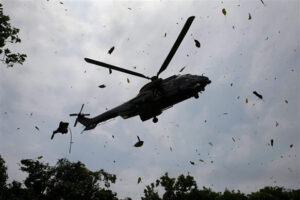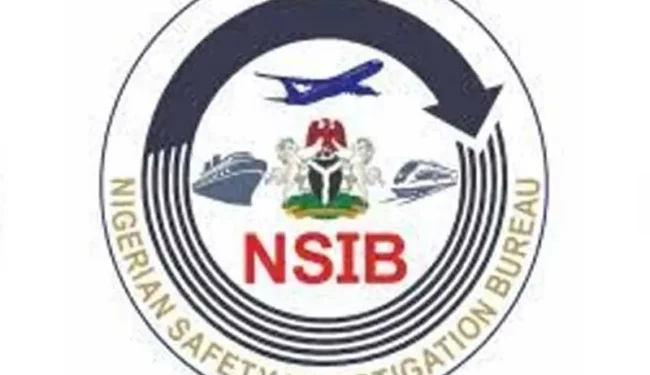The Nigerian Safety Investigation Bureau (NSIB) has revealed that the October 24, 2024, Sikorsky SK76 helicopter crash in the Atlantic Ocean, which claimed eight lives, could have been avoided if the aircraft had complied with Nigerian Civil Aviation Regulations (Nig. CARs).
Presenting the preliminary report in Abuja, NSIB Director General, Captain Alex Badeh Jr., disclosed that the Sikorsky S76C+ helicopter, operated by Eastwind Aviation Logistics Services Limited, was not equipped with a Flight Data Recorder (FDR) as required by Nig. CARs 2023 Part 7.8.2.2 (q). The regulation mandates that all helicopters with a maximum take-off mass between 3,175 kg and 7,000 kg must have an FDR installed.
“This accident highlights critical safety lapses. The absence of a Flight Data Recorder, despite regulatory requirements, deprives us of key data that could have helped identify the root cause and possibly prevent this tragedy,” Badeh stated.
The Sikorsky SK76 helicopter, with registration 5NBQG, was en route from Port Harcourt Military Base to the NUIMANTAN oil rig when it ditched into the Atlantic Ocean off the coast of Bonny Finima. The crash led to the deaths of six passengers and two crew members. Although five bodies were recovered, three remain missing as of this report.
Detailing the recovery process, Badeh said, “A Solid State Cockpit Voice Recorder (CVR) was fitted on the helicopter. It was recovered from the seabed at the accident site on November 8, 2024, thirteen days after the crash. Upon recovery, the CVR was immersed in fresh water and transported to the National Transportation Safety Board (NTSB) laboratory in the United States for analysis. The last 31 minutes of the CVR recording were successfully downloaded.”

The crash site was located at coordinates 04°13’37″N 008°19’22″E at a depth of 42 meters. Recovery efforts were fraught with challenges, including violent oceanic currents, heavy rainfall, and strong winds, which hampered day and night operations.
Describing the crash, Badeh added, “The aircraft crashed into the Atlantic Ocean and disintegrated. Fuel was observed on the surface water, and helicopter debris, along with personal belongings of the flight crew and passengers, were scattered across the area.”
The NSIB’s findings have raised concerns about adherence to aviation safety regulations and the enforcement of standards within the industry. “Had the FDR been installed as required, we would have had a clearer understanding of the events leading up to the crash and potentially avoided this tragedy,” Badeh emphasized.
As investigations continue, the NSIB urges strict compliance with aviation regulations to prevent future occurrences and improve safety within Nigeria’s aviation sector.




